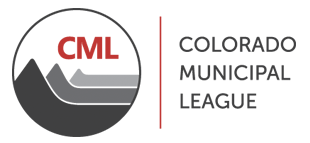In This Section
Colleagues from the 66 self-collecting sales tax municipalities,
Below are resources for you to use as your city or town moves to adopt the standard sales tax definitions that were developed pursuant to the legislative request made in SB 14-038:
- the final standard definitions;
- a memo providing an update of the project as of August 2021;
- a document that overviews the drafting and stockholder process;
- a Word template for an ordinance amending municipal code pertaining to sales and use tax definitions and exemptions;
- an Excel template for comparing existing with standardized definitions and fiscal impacts; and
- a letter from a coalition of organizations in support of the Standardized Sales Tax Project.
If you have questions or need further assistance, please contact the League 303-831-6411.
Home Rule, Self-Collecting Municipalities that have adopted the standard sales tax definitions as of January 1, 2025 with links to the municipality's sales tax definitions:
- Arvada
- Aurora
- Avon
- Black Hawk
- Boulder
- Breckenridge
- Broomfield
- Castle Pines
- Castle Rock
- Centennial
- Cherry Hills Village
- Colorado Springs
- Commerce City
- Cortez
- Craig
- Crested Butte
- Dacono
- Delta
- Denver
- Durango
- Englewood
- Evans
- Federal Heights
- Fort Collins
- Frisco
- Glenwood Springs
- Golden
- Grand Junction
- Greeley
- Greenwood Village
- Gunnison
- Gypsum
- Lafayette
- Lakewood
- Lamar
- Littleton
- Lone Tree
- Longmont
- Louisville
- Montrose
- Monument
- Mountain Village
- Mt. Crested Butte
- Northglenn
- Parker
- Rifle
- Sheridan
- Silverthorne
- Snowmass Village
- Steamboat Springs
- Timnath
- Thornton
- Vail
- Westminster
- Wheat Ridge
- Windsor
Those municipalities that self-collect but have not adopted the definitions as of January 1, 2025, are Brighton, Central City, Glendale, Pueblo, Ridgway, Telluride, Winter Park, and Woodland Park.
Note: Loveland, and Sterling have also not adopted the standard definitions, but do use the state definitions on taxation.
The information provided on this page is to the best of CML's knowledge.
